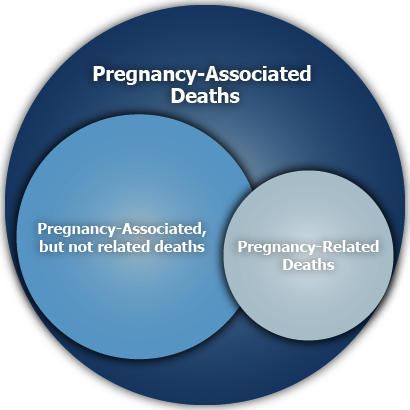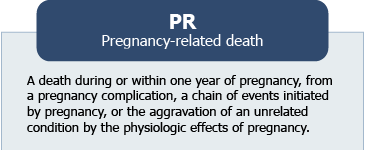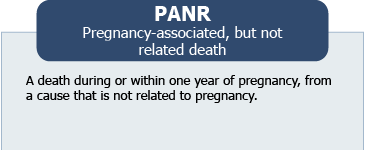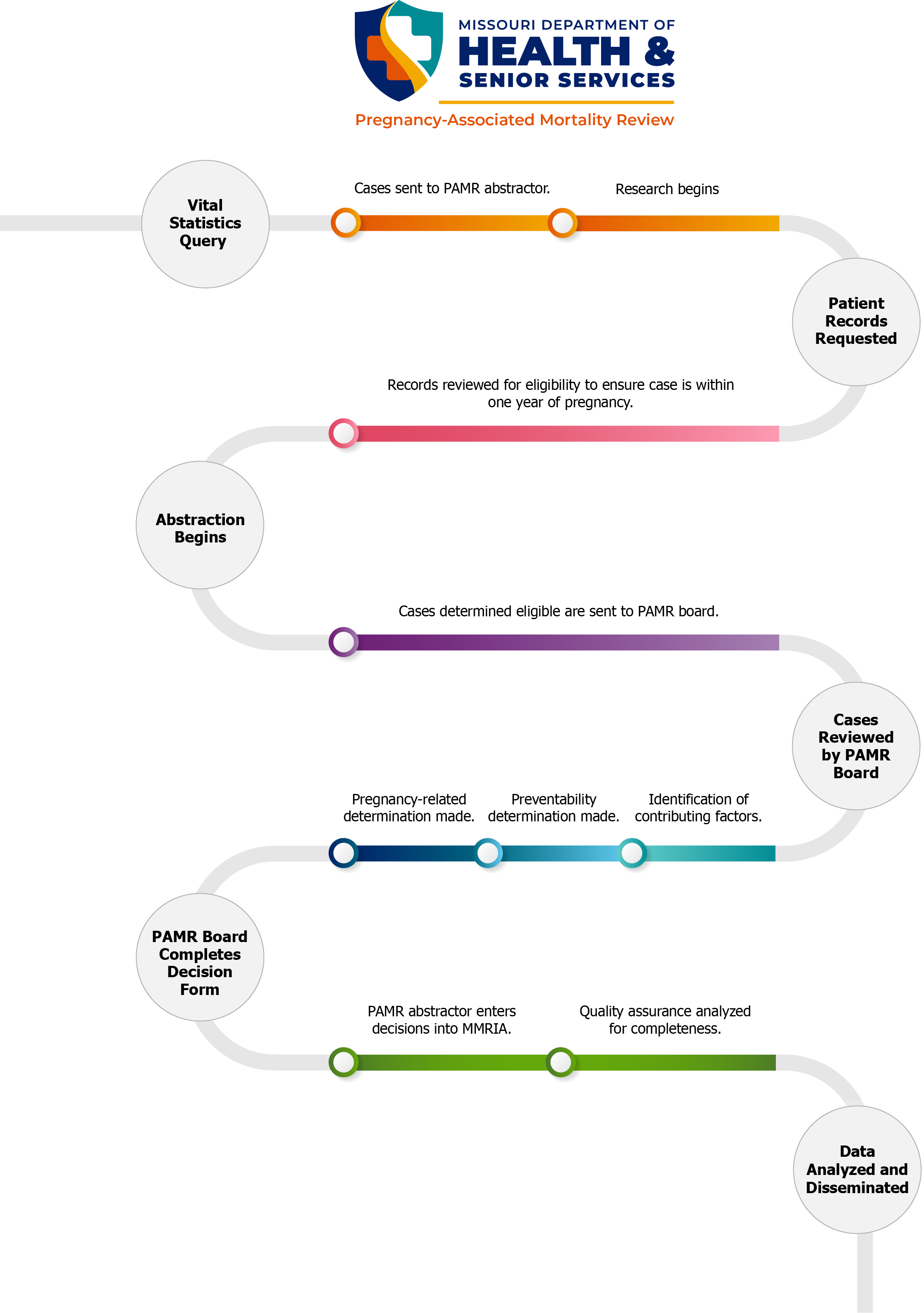PAMR Process
The PAMR board analyzes all maternal deaths that occur while a woman is pregnant, or within one year of the end of pregnancy. Those cases are considered pregnancy-associated deaths, but not all are determined to be pregnancy-related deaths.
The PAMR program was established to improve data collection and reporting of maternal deaths in Missouri. This requires an in-depth medical and social review to look into the factors that contribute to, or directly cause the death, and to prevent future occurrences.

Maternal Mortality
The PAMR program uses the term maternal mortality to encompass the topic of deaths during pregnancy, childbirth, and the postpartum period up to 365 days from the end of pregnancy.
Maternal Death
The death of a woman while pregnant or within 42 days of termination of pregnancy, regardless of the duration and the site of the pregnancy, from any cause related to or aggravated by the pregnancy or its management, but not from accidental causes. This definition is used by the National Center for Health Statistics and the World Health Organization.



The PAMR Review Process
The DHSS Office of Epidemiology identifies cases of maternal mortality for the PAMR program to investigate. After OOE identifies cases, the program receives vital records information from the death certificate, birth certificate, and fetal death information. This data is supplemented by data from the Patient Abstract System, notating where and when interactions with the healthcare system occurred for identified cases.


